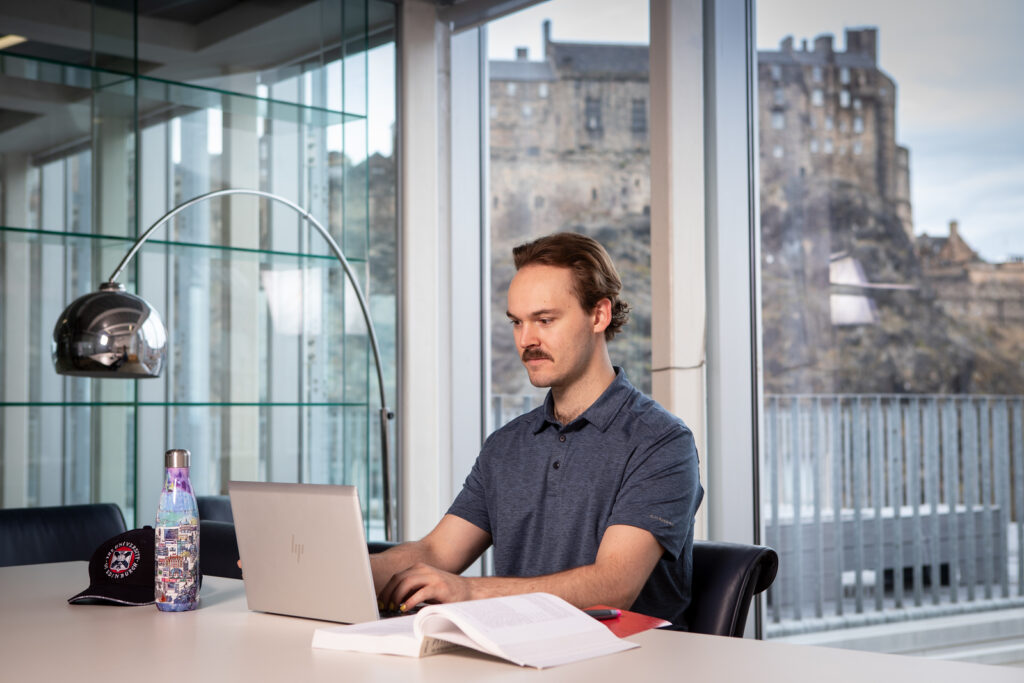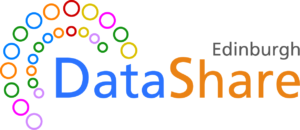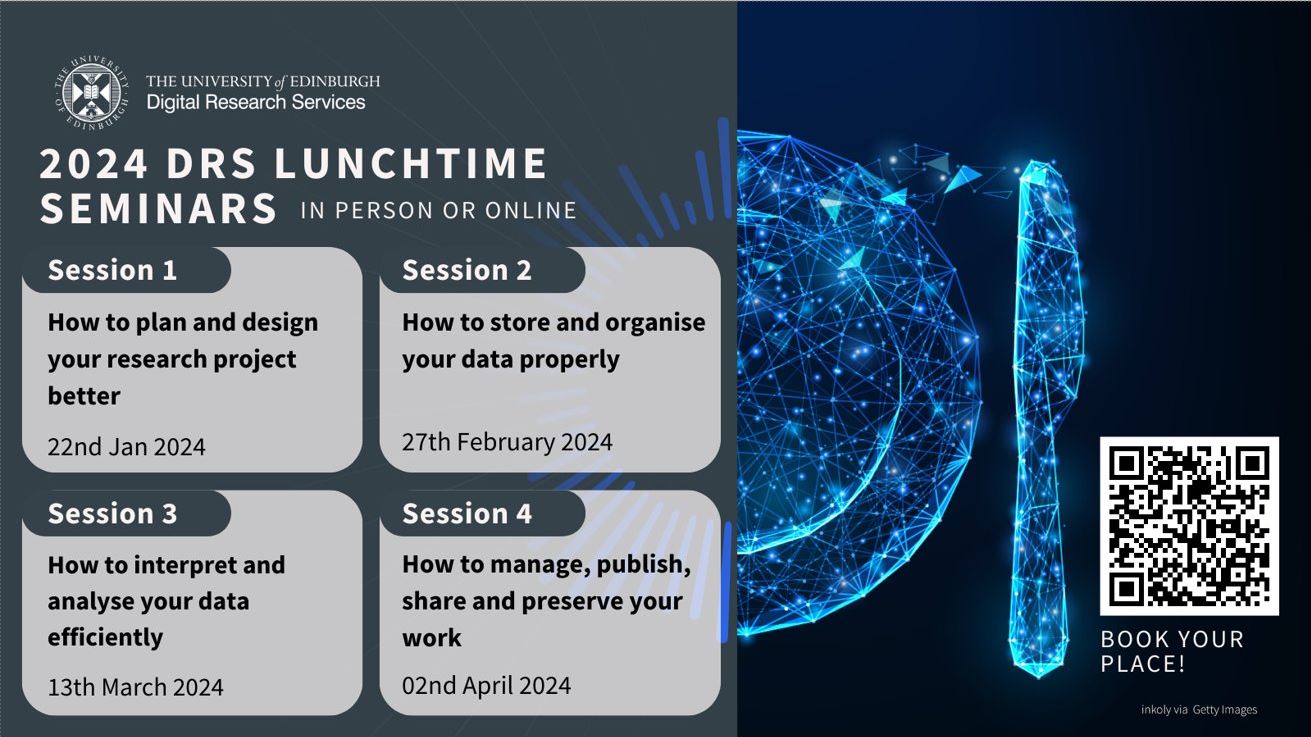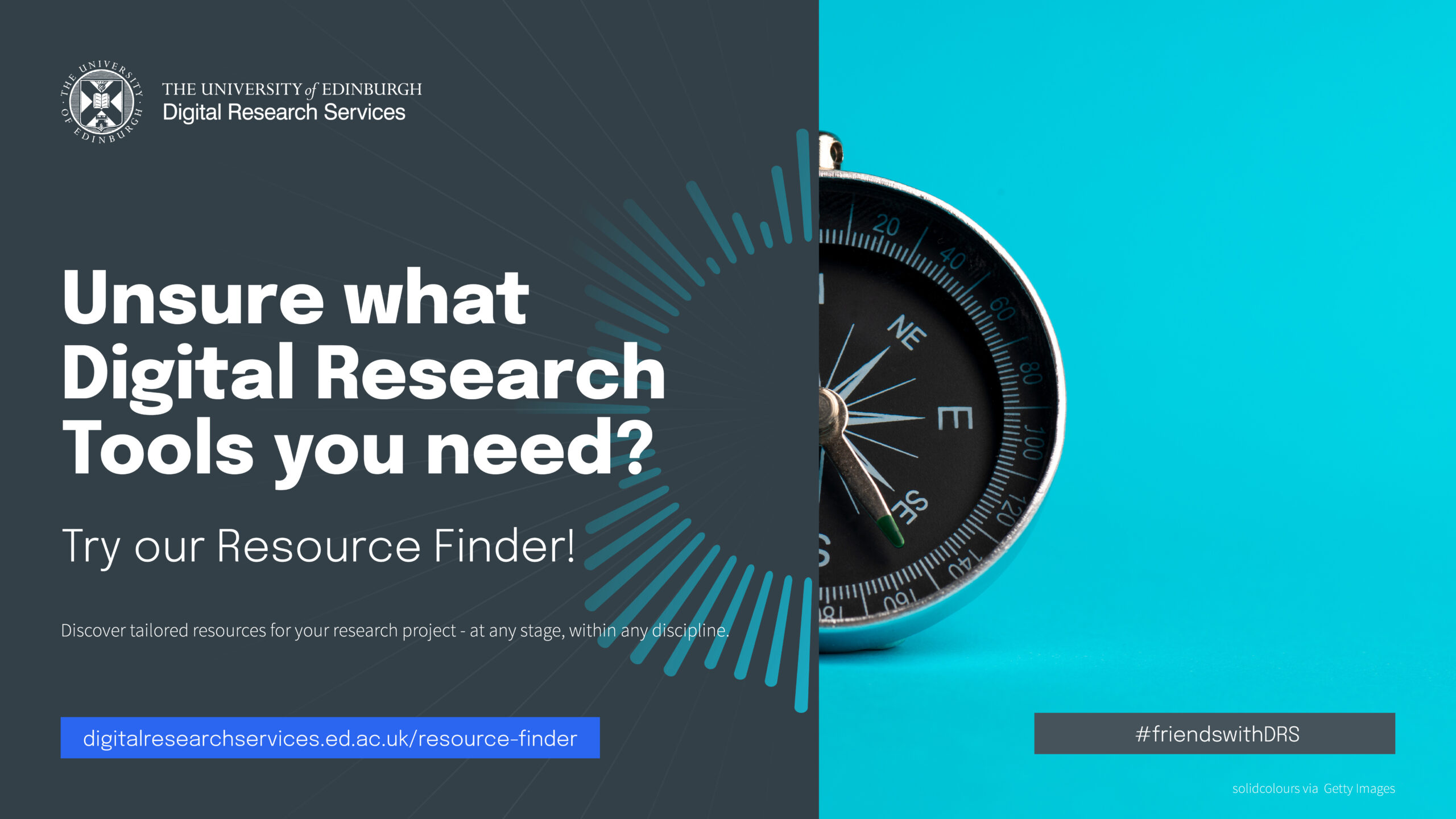University of Edinburgh courses are now available to book on all topics dealing with research data management. Aimed at postgraduate research students and academic staff, these four courses are taught by experts from the Library’s Research Data Support team, and cover all aspects of managing digital data for a research project. Each course is offered multiple times during the term, at different campus locations and online.
If you are new to concepts of research data management (RDM) you may wish to take the “Data Management for your Research” overview course (1.5 hours). You will be able to apply basic RDM skills to your daily research practices and understand what the FAIR principles (Findable, Accessible, Interoperable, and Reusable) mean and why they matter.
“Writing a Data Management Plan for Your Research”: in this interactive two-hour workshop you will understand the basic components of good DMP, and will produce a first draft Data Management Plan (DMP) for your research project using a tool called DMPonline.
Building on the University’s online Data Protection training, “Working with Personal and Sensitive Data” will prepare you for the challenges of dealing with human subject and other types of confidential data: how to collect, share, store and protect your data safely and securely, and what university services are available to help you (two hours).
“Archiving Your Research Data” (1.5-2 hours) helps you to plan ahead to when your  research project is approaching completion and it is time to find an appropriate repository to share or safeguard the underlying data for your paper, thesis or dissertation for the long-term. You will gain familiarity with using the University’s open acess data repository, DataShare, and know about an alternative restricted access solution, DataVault, as well as how to identify other appropriate repositories. If you are unable to attend any of these scheduled Archiving Your Research Data workshops, you can request additional sessions via our online form: Request training: Archiving your Research Data.
research project is approaching completion and it is time to find an appropriate repository to share or safeguard the underlying data for your paper, thesis or dissertation for the long-term. You will gain familiarity with using the University’s open acess data repository, DataShare, and know about an alternative restricted access solution, DataVault, as well as how to identify other appropriate repositories. If you are unable to attend any of these scheduled Archiving Your Research Data workshops, you can request additional sessions via our online form: Request training: Archiving your Research Data.
All of the above courses are available to book through our scheduled workshops web page: Research Data Service – Scheduled workshops.
Robin Rice
Data Librarian and Head, Research Data Support


 The speakers for the
The speakers for the 
 During the week of the event, Simon and I visited prior and new contacts at Tokyo University, Chiba University, Kyoto University, Nagoya University and NII. In addition to the excellent company, we were pleased to be visiting such a beautiful country and eating the wonderful food.
During the week of the event, Simon and I visited prior and new contacts at Tokyo University, Chiba University, Kyoto University, Nagoya University and NII. In addition to the excellent company, we were pleased to be visiting such a beautiful country and eating the wonderful food.




